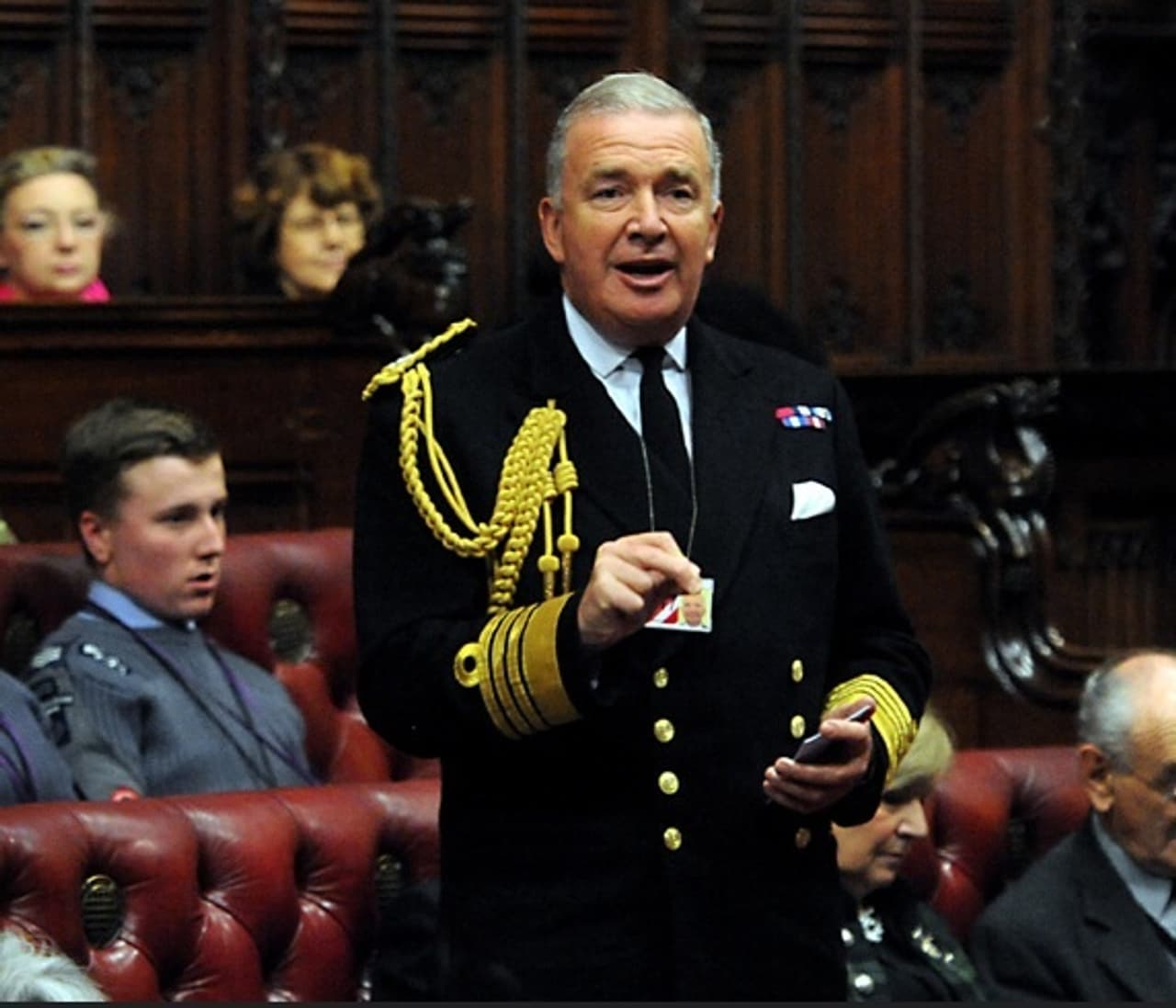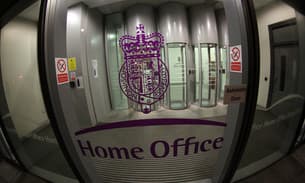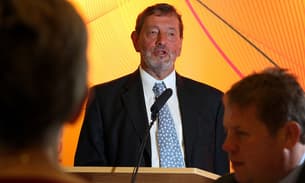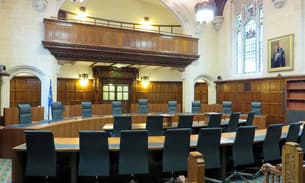
Move by senior peers to introduce a new ‘Snoopers’ Charter’ dubbed ‘ill-judged’ and ‘deeply regrettable’
Lord West, 2013 by House of Lords/Flickr
A last-minute attempt by two former defence ministers and a past head of Scotland Yard to create a revised “snoopers’ charter” that would help Britain’s surveillance agencies monitor online activity was today criticised as “ill-judged” and “deeply regrettable”.
The Internet Service Providers’ Association, whose members include the broadband arms of BT and BSkyB, warned that a new amendment to a bill passing through Parliament was a bid to introduce controversial legislation by the “backdoor”.
Former Metropolitan Police Commissioner Lord Blair is one of four peers who have tabled amendments to the Counter Terrorism and Security Bill that will be debated in the House of Lords on Monday.
The proposed new powers would allow Home Secretary Theresa May to require telecommunications operators to retain “traffic data, user data or subscriber data” for at least a year and disclose it to relevant public authorities for reading, analysis, or copying.
The others to have put their names to the amendment are Lib Dem Lord Carlile – the government’s former independent reviewer of terrorism legislation – former Conservative Defence Secretary Lord (Tom) King, and Lord (Admiral Sir Alan) West, who was a Labour defence minister and former First Sea Lord.
Similar powers would have been introduced under the Draft Communications Data Bill, dubbed the “snoopers’ charter”, which was proposed by Theresa May in 2012 but blocked by the Liberal Democrats in 2013 amid concerns about civil liberties.
However, the issue has returned to the agenda in the wake of terrorist atrocities in Paris and Brussels this month.
Intelligence chiefs have warned David Cameron their powers to monitor internet activity need strengthening.
Currently, telcos and internet service providers are required to keep data that has been processed for normal business purposes such as billing or marketing for 12 months.
Firms do not currently retain the internet data covered by the new proposals. The amendments include a provision for the companies affected to be compensated for the costs of storing and securing the additional data.
The focus of the Counter Terrorism and Security Bill before the proposed amendments was extra powers for temporary exclusion orders, passport removals, a strengthening of the Prevent strategy and measures to help identify which electronic device is using a particular IP address.
Nicholas Lansman, secretary general of the Internet Service Providers Association, said the proposed new clauses were “ill-judged”.
Pointing out that the “complex bill” was passing through Parliament on a fast-track route, he added: “The Lords cannot have time to properly consider the substantial powers contained in the amendments to the bill, and would deny the Commons the opportunity to properly consider the powers as well.
“The Draft Communications Data Bill was scrutinised by a Joint Parliamentary Committee in 2012 who concluded that there ‘should be a new round of consultation with technical experts, industry, law enforcement bodies, public authorities and civil liberties groups.
“At the time industry was critical of the level of consultation and there has since been no adequate consultation.
“The committee also had substantial concerns around the wholesale collection and analysis of communications data, oversight regime, definitions of communications data and robustness of cost estimates, and these have not been addressed and would require considerable changes to the current drafting.
“Introducing as amendments to a bill that is being fast-tracked through Parliament, without acknowledging the need for further debate and substantial change, is deeply regrettable.
“We urge Parliament to reject this attempt to insert complex legislation into an existing bill at the last minute.”
The bill is scheduled to finish its report stage in the Lords by early February when it will then go for a third reading.
The Open Rights group dubbed the amendments move “an abuse of parliamentary procedure”.
Intelligence and security officials have been complaining in recent months that changes to the way terrorists communicate, with few now using mobile networks and increasing encryption, meant some correspondence was now out of reach.
Speaking at a debate on surveillance at the London School of Economics on Tuesday, Lord West said that thousands of people could die as a result of leaks by National Security Agency whistleblower Edward Snowden, which revealed spying tactics by the US and British intelligence agencies.
“It is quite clear that terrorists are now doing things to avoid us being able to monitor what they are doing and inevitably it will mean people will die because of it.
“One can say that the numbers who will die are tiny – a several thousand around the globe and maybe that doesn’t matter in the context of privacy but it is an unintended consequence [of the Snowden leaks].”
He added: “When I was chief of defence intelligence GCHQ had been asked by NSA to go over and we happened to spot someone who thought it would be great fun to change over the blood groups in a mass of US hospitals.
“Luckily that was spotted or else there would have been hundreds killed the following day. I think dark spaces can be extremely dangerous.”




